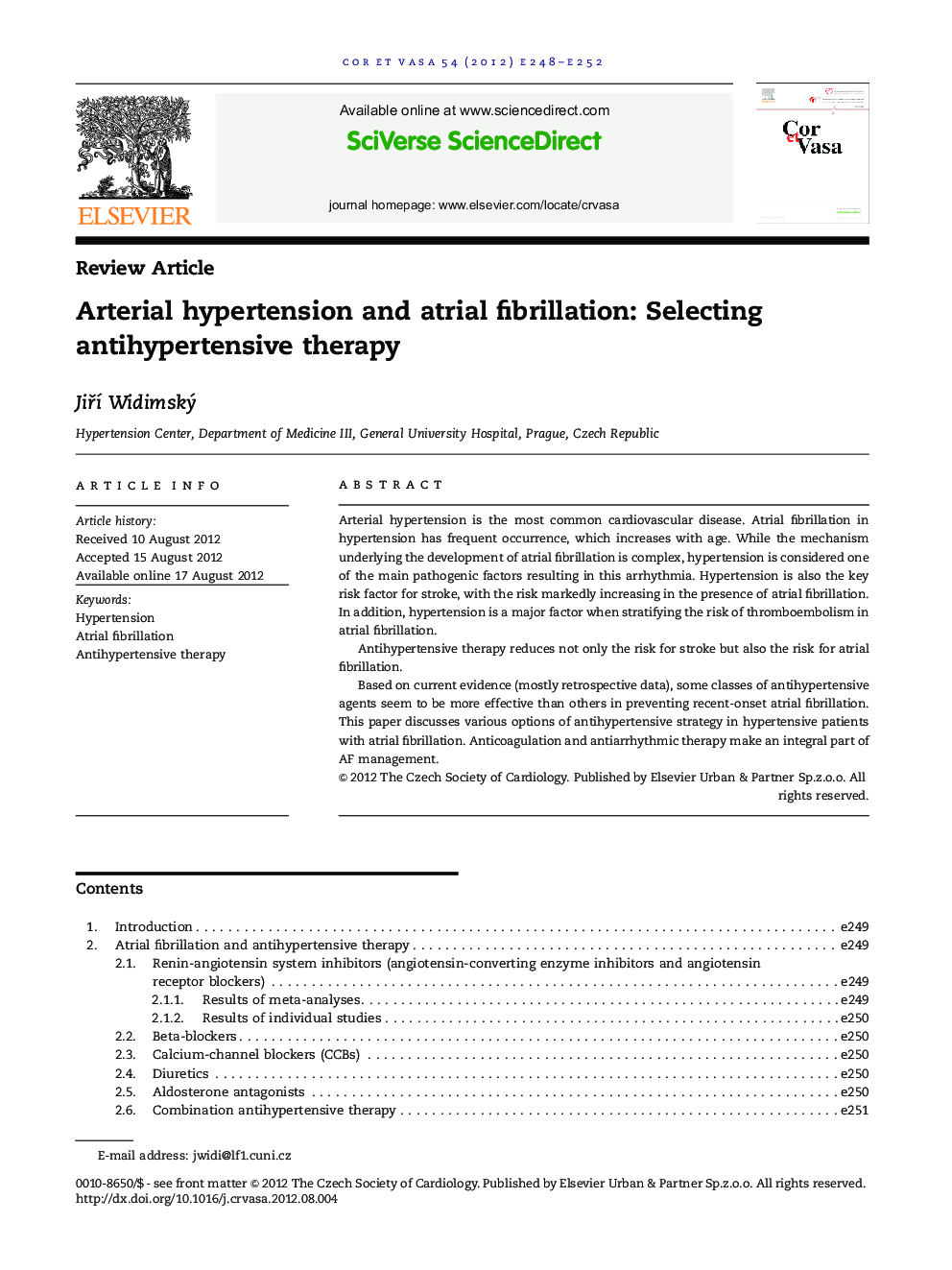| Article ID | Journal | Published Year | Pages | File Type |
|---|---|---|---|---|
| 2728466 | Cor et Vasa | 2012 | 5 Pages |
Arterial hypertension is the most common cardiovascular disease. Atrial fibrillation in hypertension has frequent occurrence, which increases with age. While the mechanism underlying the development of atrial fibrillation is complex, hypertension is considered one of the main pathogenic factors resulting in this arrhythmia. Hypertension is also the key risk factor for stroke, with the risk markedly increasing in the presence of atrial fibrillation. In addition, hypertension is a major factor when stratifying the risk of thromboembolism in atrial fibrillation.Antihypertensive therapy reduces not only the risk for stroke but also the risk for atrial fibrillation.Based on current evidence (mostly retrospective data), some classes of antihypertensive agents seem to be more effective than others in preventing recent-onset atrial fibrillation. This paper discusses various options of antihypertensive strategy in hypertensive patients with atrial fibrillation. Anticoagulation and antiarrhythmic therapy make an integral part of AF management.
